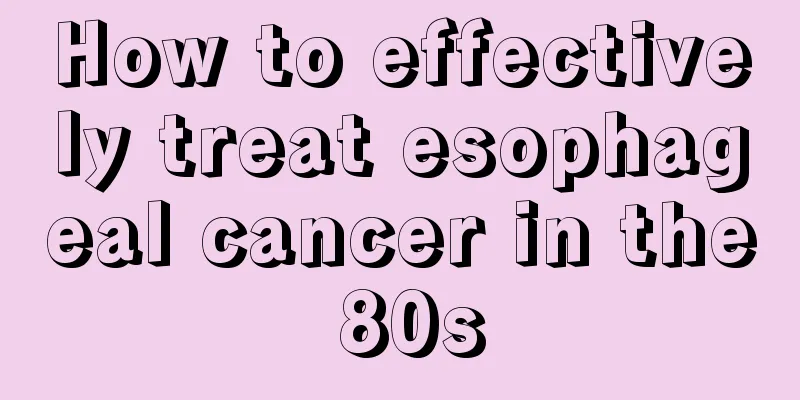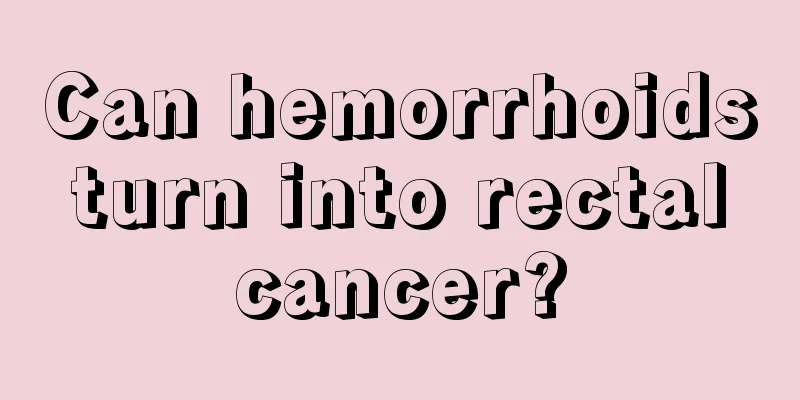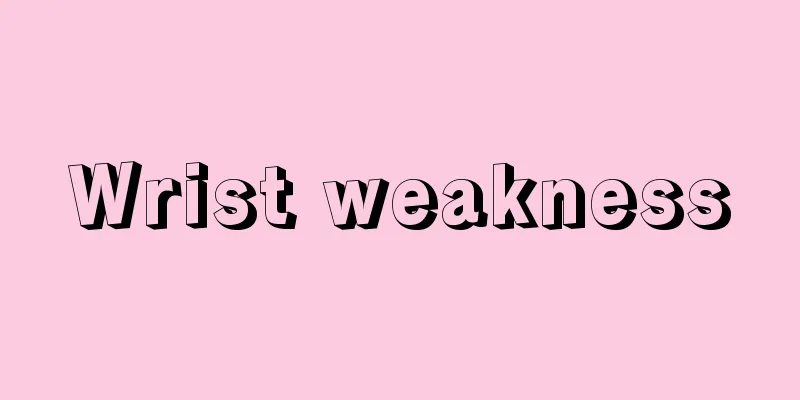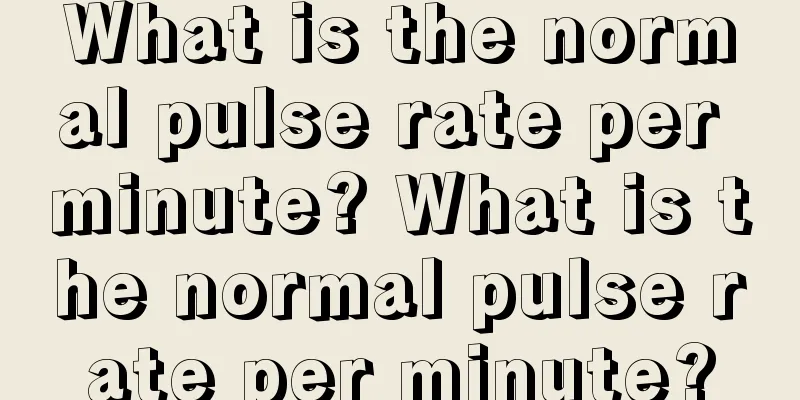How to effectively treat esophageal cancer in the 80s

|
The treatment effect of esophageal cancer in the 80s depends on comprehensive treatment, including surgery, radiotherapy, chemotherapy and nutritional support, and a personalized plan should be formulated according to the patient's physical condition. The treatment of esophageal cancer needs to be combined with the patient's age, tumor stage and overall health status. Elderly patients need to pay more attention to treatment safety and quality of life. 1. Surgery is one of the main treatments for esophageal cancer and is suitable for early-stage patients. For patients over 80 years old, cardiopulmonary function and surgical tolerance need to be assessed. Common surgical methods include esophagectomy, minimally invasive esophagectomy and esophageal reconstruction. If the patient's physical condition allows, surgery can effectively remove the tumor and prolong survival. 2. Radiotherapy is suitable for patients who cannot undergo surgery or postoperative adjuvant therapy. For elderly patients, radiotherapy can relieve symptoms such as dysphagia and improve the quality of life. Radiotherapy methods include external beam radiotherapy, internal beam radiotherapy and stereotactic radiotherapy. Radiotherapy should pay attention to protecting the surrounding normal tissues and reducing side effects. 3. Chemotherapy is often used for advanced esophageal cancer or postoperative adjuvant therapy. Commonly used chemotherapy drugs include cisplatin, fluorouracil and paclitaxel. For elderly patients, the chemotherapy dose needs to be adjusted to avoid overtreatment. Chemotherapy can shrink tumors and relieve symptoms, but liver and kidney function and blood routine tests need to be closely monitored. 4. Nutritional support is an important part of the treatment of esophageal cancer. Patients often suffer from malnutrition due to dysphagia and need to supplement energy through nasogastric tube, gastrostomy or intravenous nutrition. Dietary recommendations include high-protein liquid food, nutritional supplements and small and frequent meals. Good nutritional status helps improve treatment tolerance and quality of life. 5. Psychological counseling is particularly important for elderly patients. The diagnosis and treatment of esophageal cancer may lead to emotional problems such as anxiety and depression, which require psychological counseling, family support and relaxation training to relieve psychological stress. A positive attitude helps improve treatment outcomes and quality of life. The treatment of esophageal cancer in patients over 80 years old requires comprehensive consideration of surgery, radiotherapy, chemotherapy and nutritional support, and the development of a personalized plan. Elderly patients need to pay more attention to treatment safety and quality of life, and through multidisciplinary collaboration, improve treatment effects, prolong survival and improve quality of life. |
<<: Is the symptom of throat discomfort in thyroid cancer in the middle or late stage?
>>: How long can one live if he can still eat in the late stage of esophageal cancer
Recommend
What are the most effective ways to quit drinking
We know that drinking in moderation is good for o...
How to carry out the weight gain plan
If you want to gain weight, of course you should ...
What are the symptoms of parietal lobe brain cancer
What are the symptoms of parietal lobe brain canc...
What is the treatment for pancreatic cancer
Pancreatic cancer occurs frequently in our daily ...
How often should tongue cancer be checked
No matter what disease it is, you must cooperate ...
The fingers were swollen and purple
Finger pinching is a relatively common occurrence...
Is acupuncture effective in treating cerebral infarction?
Cerebral infarction is a common disease in life. ...
How to quickly eliminate alcohol rash
Wine culture is extensive and profound, however, ...
Can I do ani exercises during menstruation?
Everyone knows that women have their periods ever...
How to eliminate gallstones?
Gallstones are a disease that many people are pro...
Is intracranial metastasis of nasopharyngeal carcinoma serious?
Is intracranial metastasis of nasopharyngeal carc...
What is the reason for spots on hands
Spots may appear on any part of the body due to v...
Why does my stomach feel uncomfortable when I drink water
Many people do not have a clear awareness of drin...
What is the recurrence rate after liver cancer surgery? Pay attention to these points
Liver cancer is now a common and extremely danger...
Causes of ovarian cancer
The causes of ovarian cancer include genetics, en...









